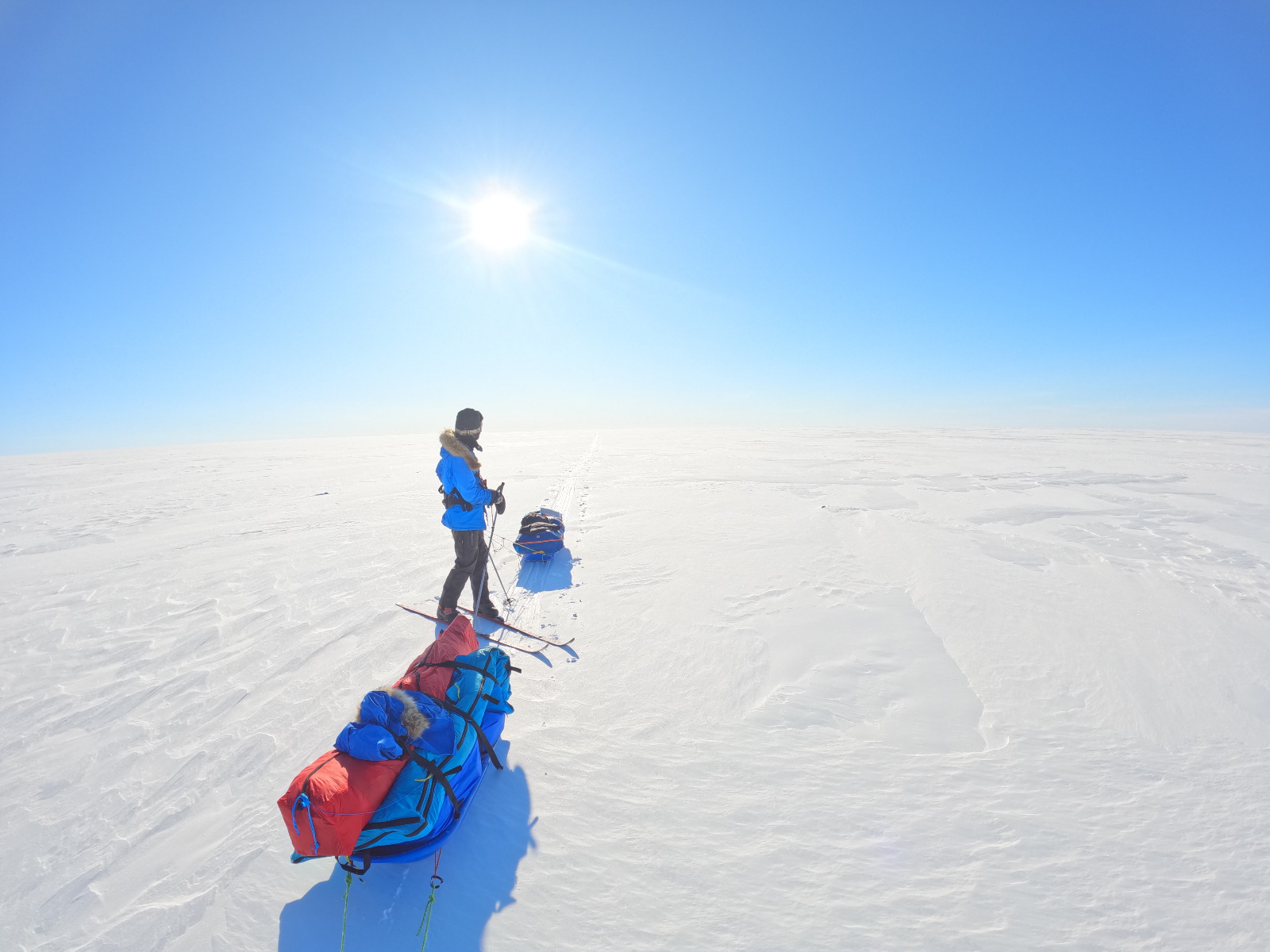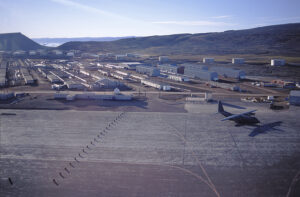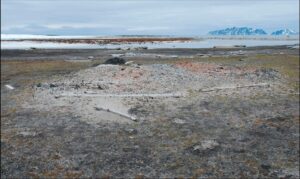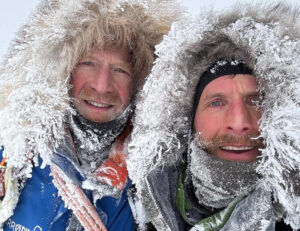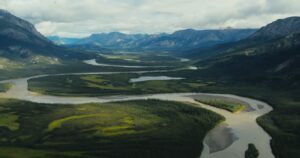Last week, expeditions finished in northern Quebec and the Northwest Territories. The remaining action focuses on Ellesmere Island, the Northwest Passage and Greenland.
Ellesmere Island
After a long weather delay, a charter plane dropped off Borge Ousland and Vincent Colliard at Ward Hunt Island on April 27. After a couple of days of skiing through rough sea ice along Ellesmere’s north coast, the experienced pair reached Cape Columbia (83˚07′). Earlier this week, they encountered a polar bear that Colliard described as “very curious plus plus.” The bear approached within 12m of them before Ousland fired a signal flare, scaring it away.
A few days later, Ousland and Colliard camped in the same place where, in March 1990, Ousland, Erling Kagge, and Geir Randy started the first successful unsupported ski trek to the North Pole. Thirty-five years later, Ousland is instead heading south on a 1,100km attempt at the first unsupported north-to-south crossing of Ellesmere.
Northwest Passage
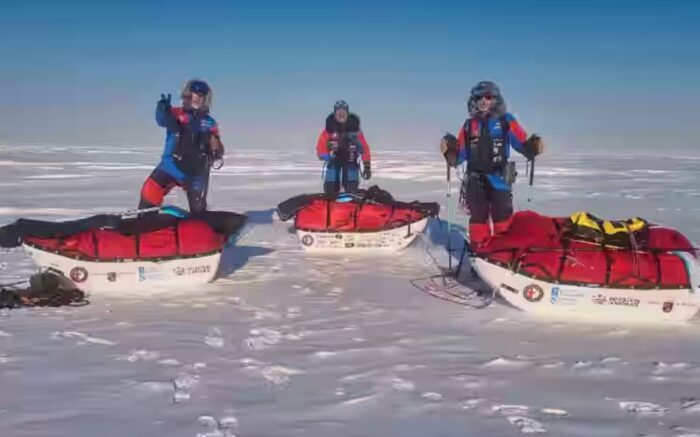
The Spanish Northwest Passage team. Photo: mardehielo2025.com
Spaniards Jose Trejo, Sechu Lopez, and Francisco Mira are 28 days into their sled journey to Gjoa Haven. Following an initial charter flight to Prince of Wales Island, they have skied around 350 km.
As of May 3, they are nearing the end of the Franklin Strait and heading into the M’Clintock Channel. Recently, they have made steady daily progress of 20km or more, despite some areas of broken ice.
The Spaniards spotted polar bear prints on April 28, and later watched a bear pass near their camp before disappearing out of sight. The three men are carrying two firearms for last-resort protection.
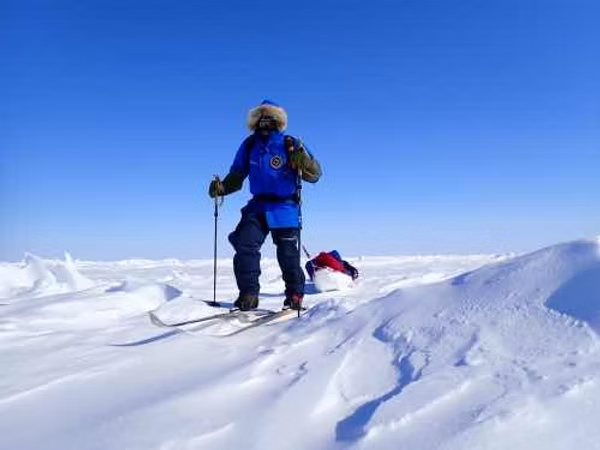
Photo: Anders Brenna
Norwegian Anders Brenna is further south and five weeks into a slow and severely shortened journey. He planned to ski 1,100km from Gjoa Haven to Glenelg Bay on northern Victoria Island, but slow progress forced Brenna to head to Cambridge Bay instead, reducing his route to 400km. Brenna is currently halfway across the flattest land in that part of the High Arctic — Jenny Lin Island.
Devon Island
At the end of last week, Jose Naranjo of Spain and Ingrid Ortlieb of Germany completed a sled expedition on the Devon Ice Cap. Devon Island is the largest uninhabited island in the world and sits between Baffin Island and Ellesmere. Naranjo and Ortlieb were dropped off by snowmobile at the head of the Sverdrup Glacier after crossing frozen Jones Sound.
From there, the pair skied across part of the ice cap, descended an unnamed glacier on the southeastern coast, then skied back to the western edge of the ice cap across the large central plateau. Finally, they returned to their starting point and went back down to sea ice, again using the ramp of the Sverdrup Glacier. In 30 days, they covered around 300km.
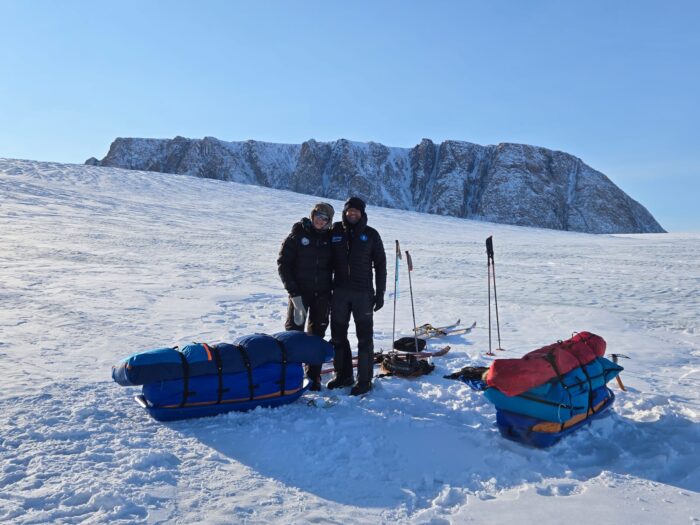
Ingrid Ortlieb, left, and Jose Naranjo on Devon Island. Photo: Ingrid Ortlieb
Baffin Island
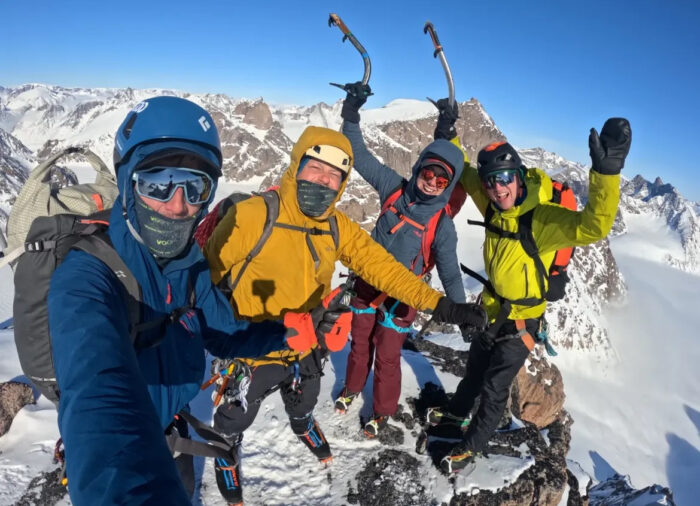
Photo: Ben James
Britons Tom Harding, Ben James, Leanne Dyke, and James Hoyes have completed their ski and climbing expedition. They skied around 100km to access the mountains east of Akshayuk Pass after being dropped at the Weasel River Valley. The trio report making seven possible first ascents, to be confirmed later.
Greenland
After one of the four kite skiers was evacuated with a knee injury on April 29, Camila Ringold’s team has continued north past the 70th parallel on the Greenland Ice Sheet. Whiteouts have slowed progress, and too-strong winds prevented safe kiting on some days. Their goal is a 2,000km crossing from Kangerlussuaq to Qaanaaq.
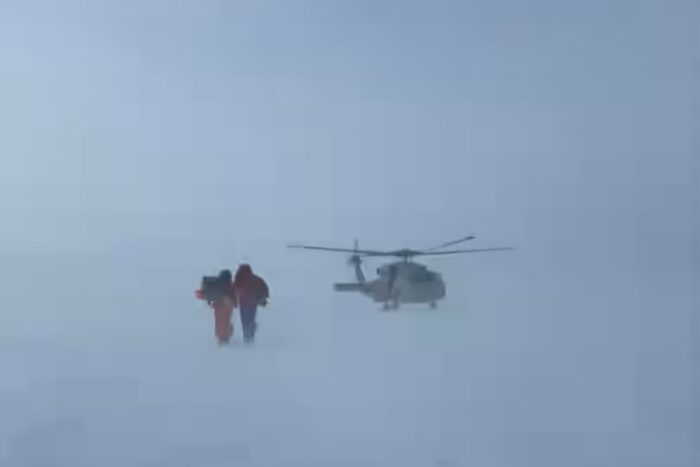
The injured kite skier is evacuated. Photo: Camila Ringold
Again, there is no news on Japanese Arctic traveler Yasu Ogita, who last updated in mid-April from Qaanaaq. Ogita was awaiting a helicopter ride to Siorapaluk, from which he will ski 400km to the Cape Inglefield region and back.
